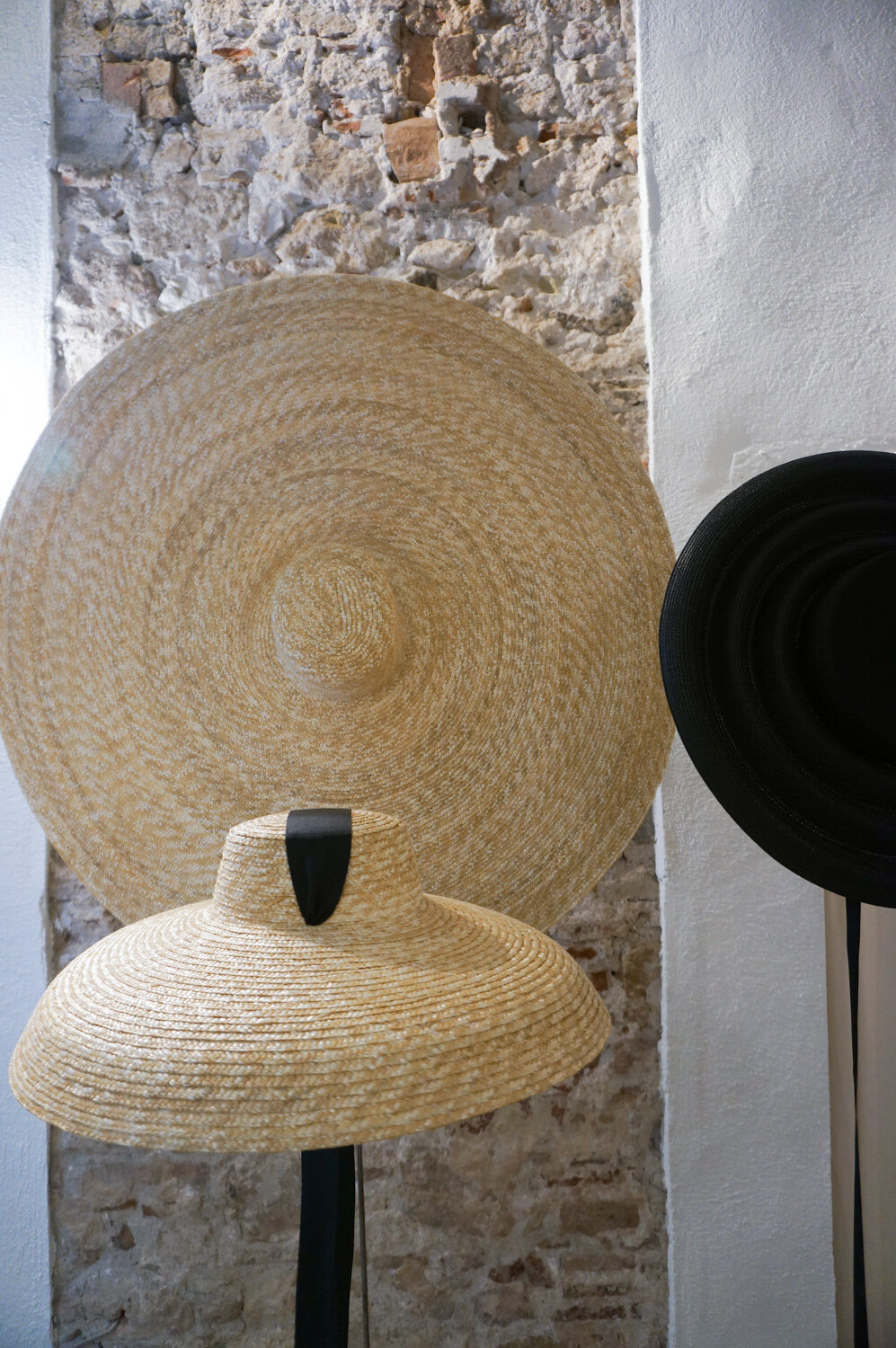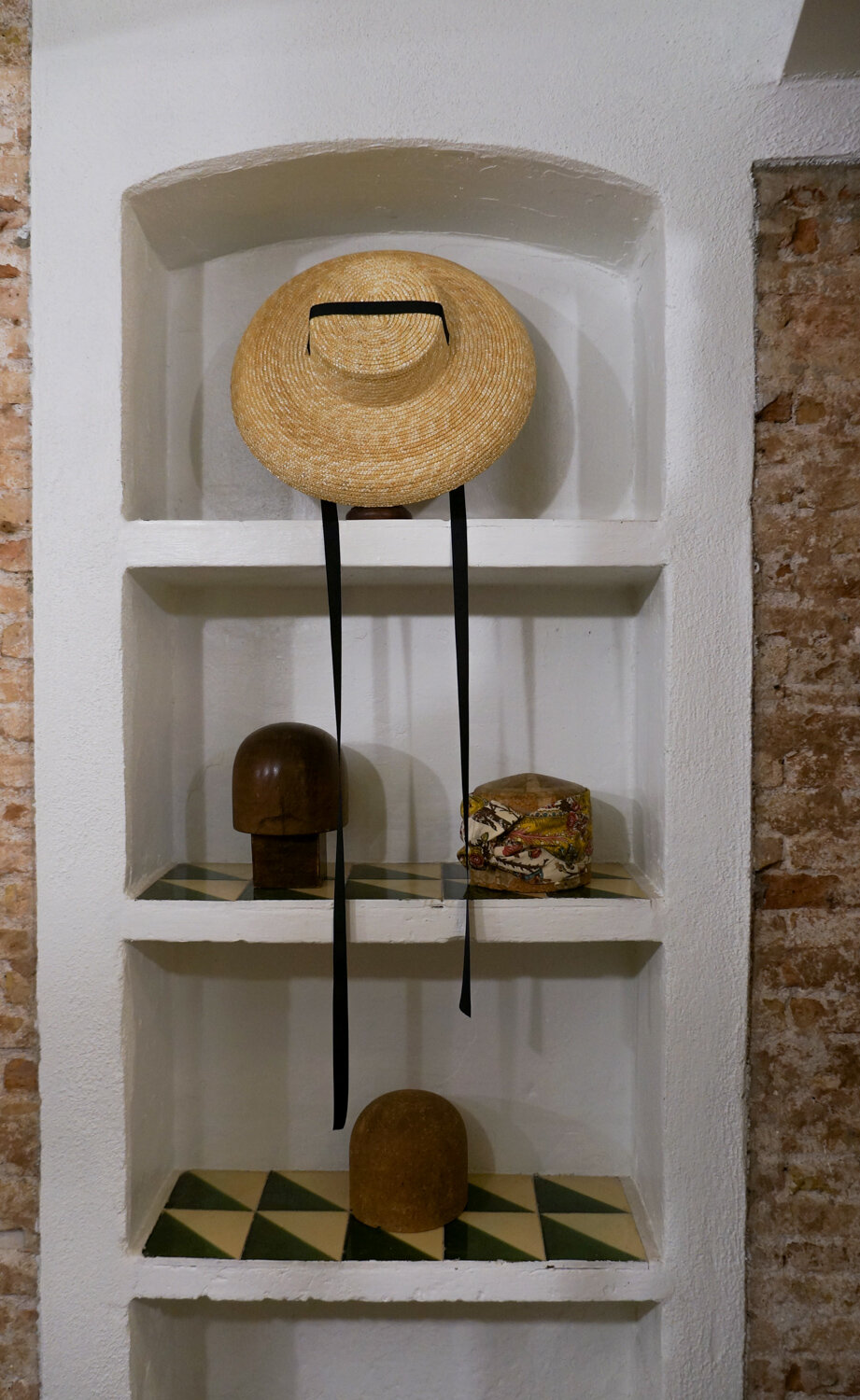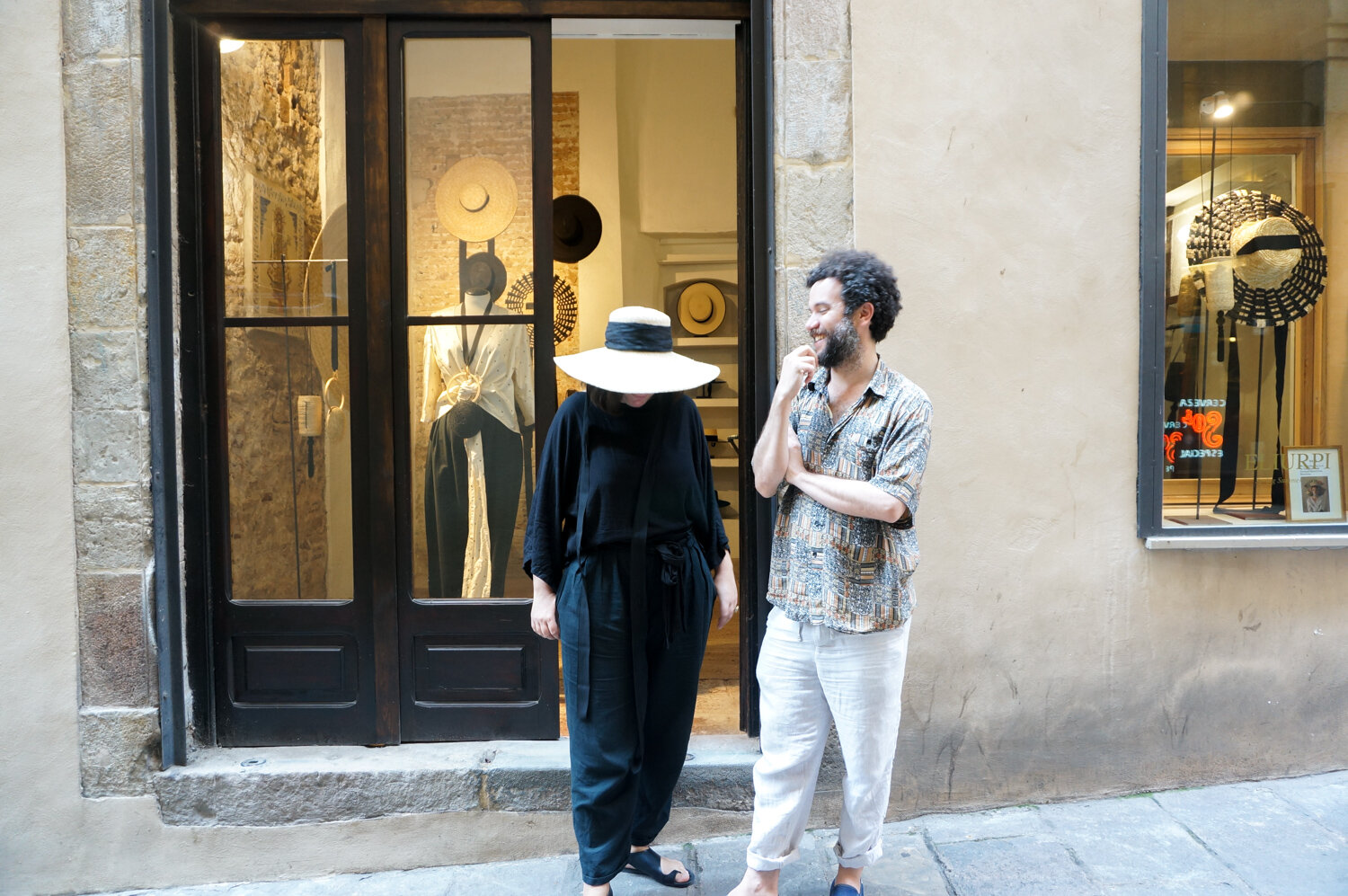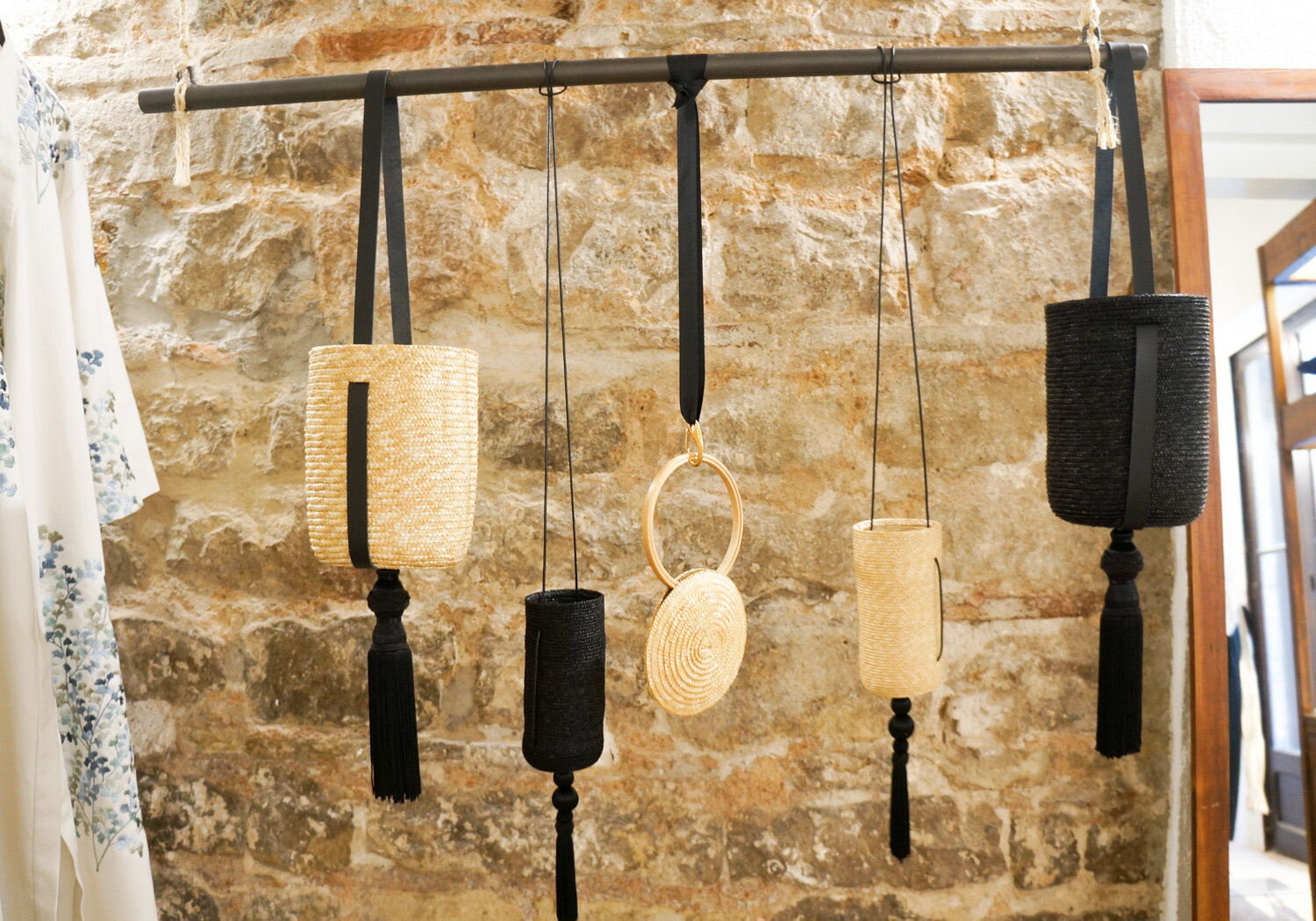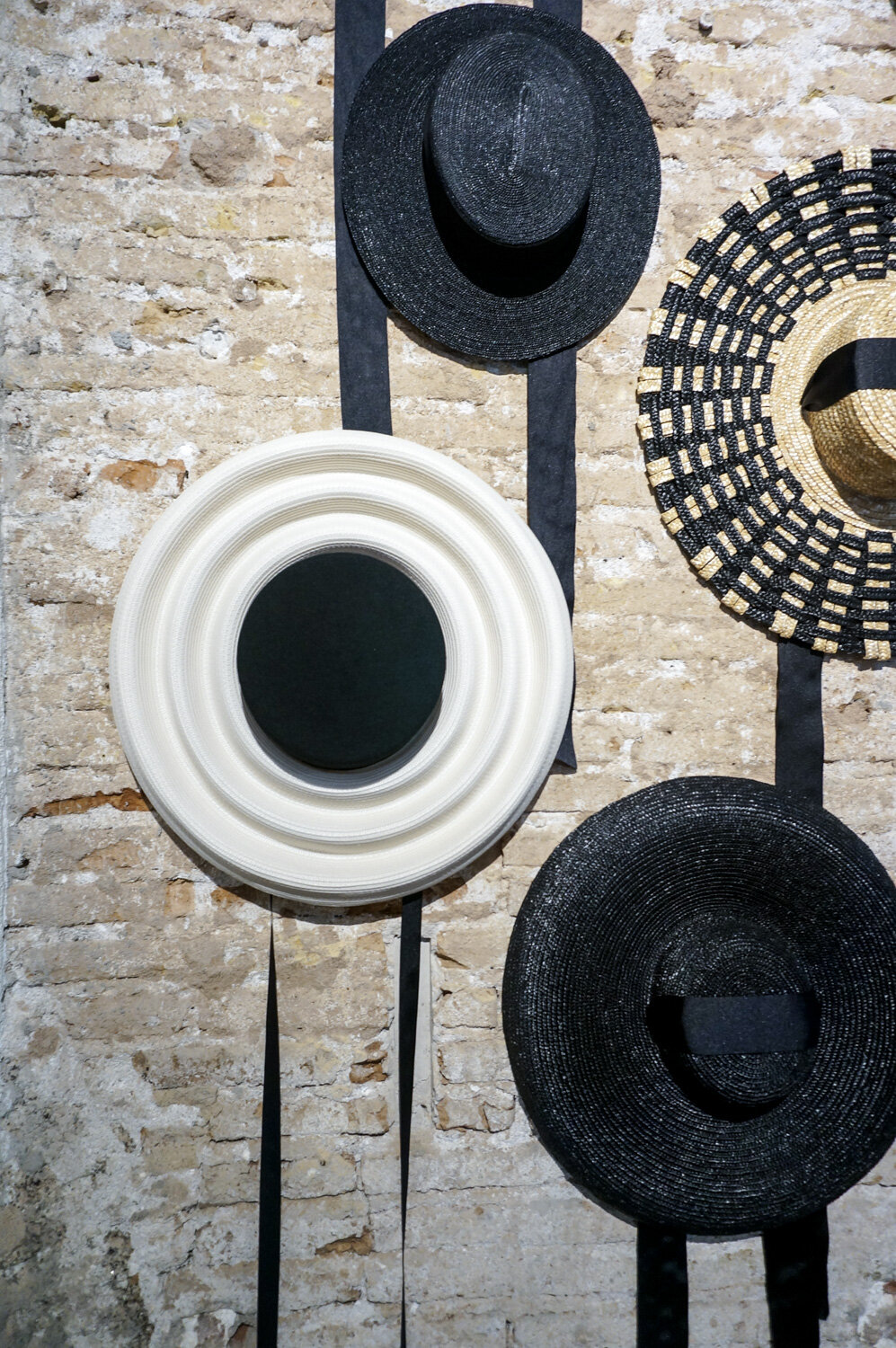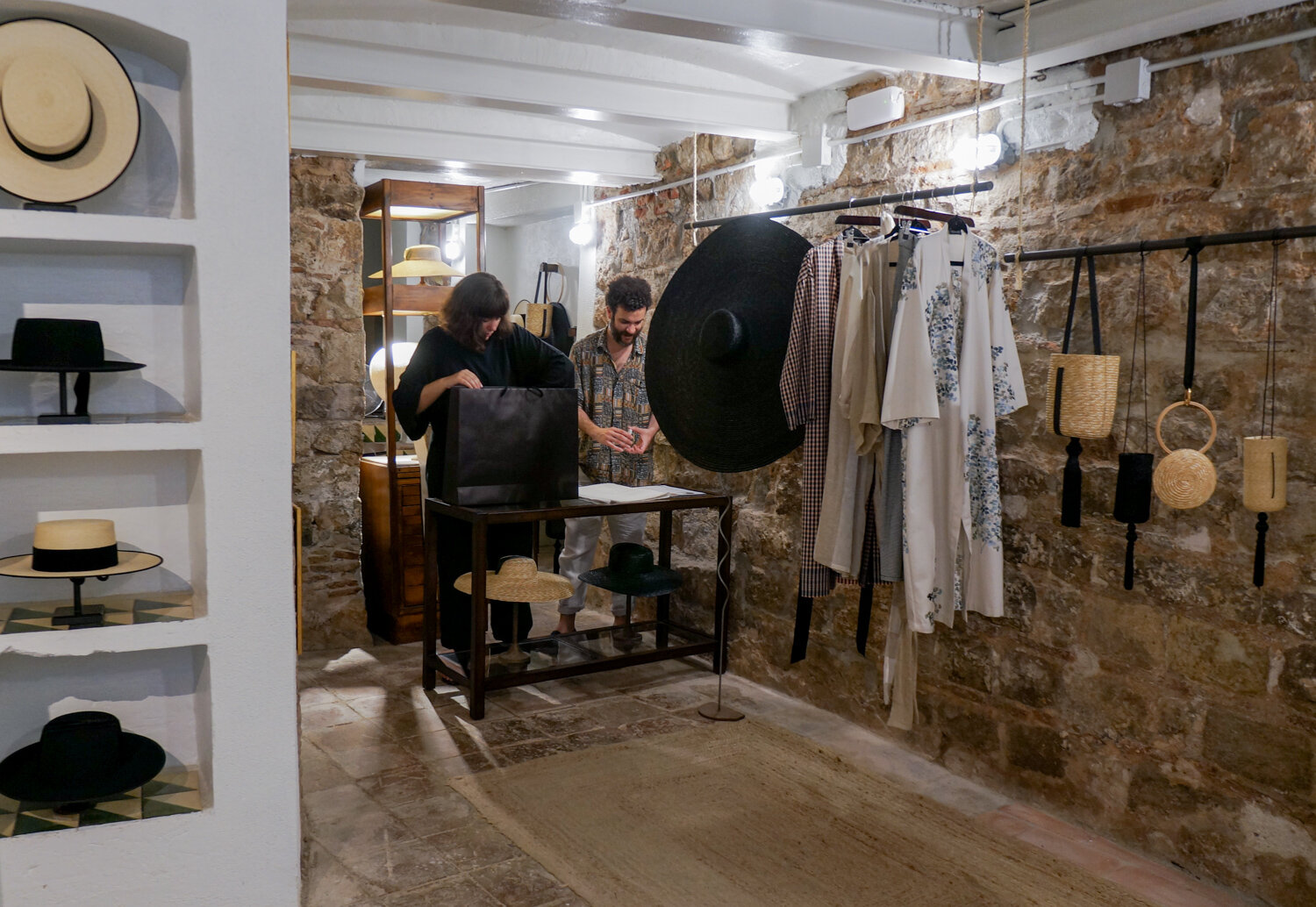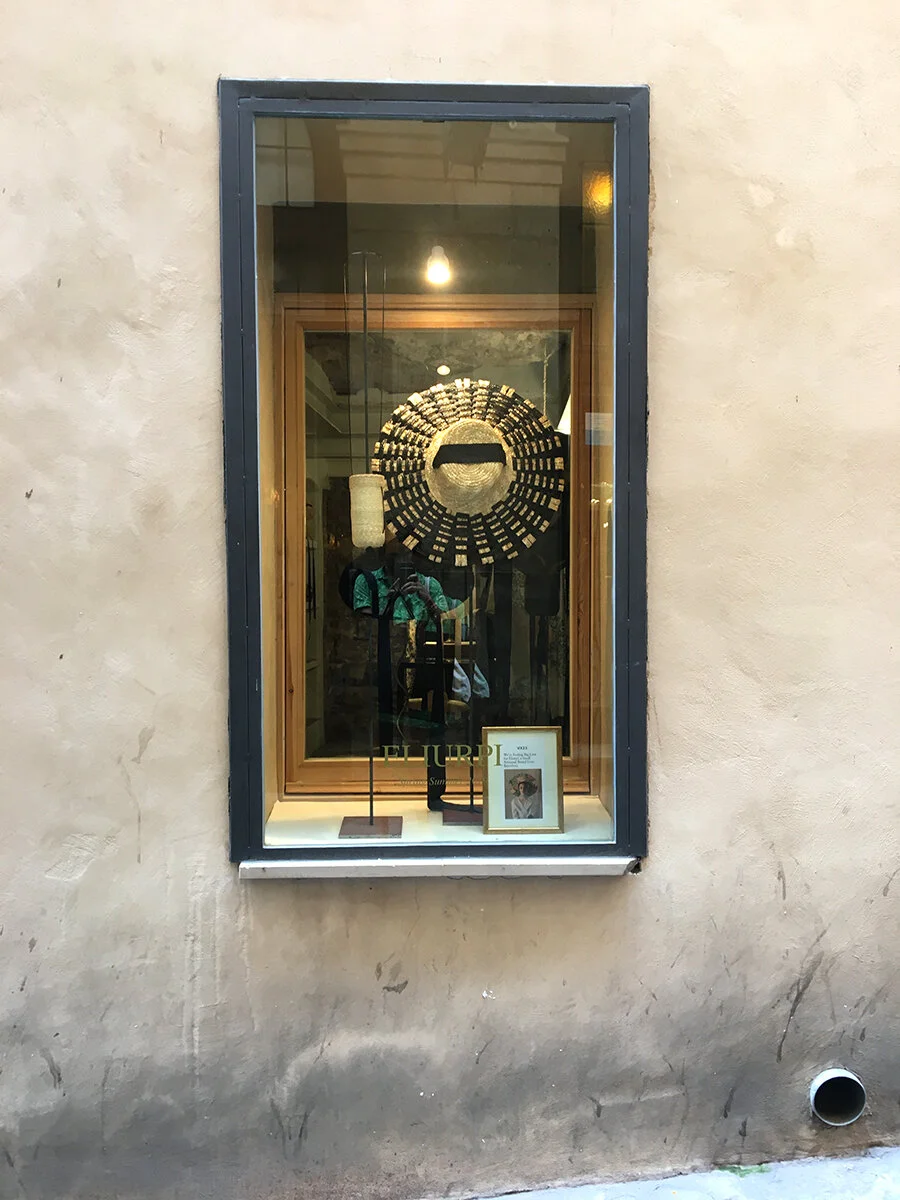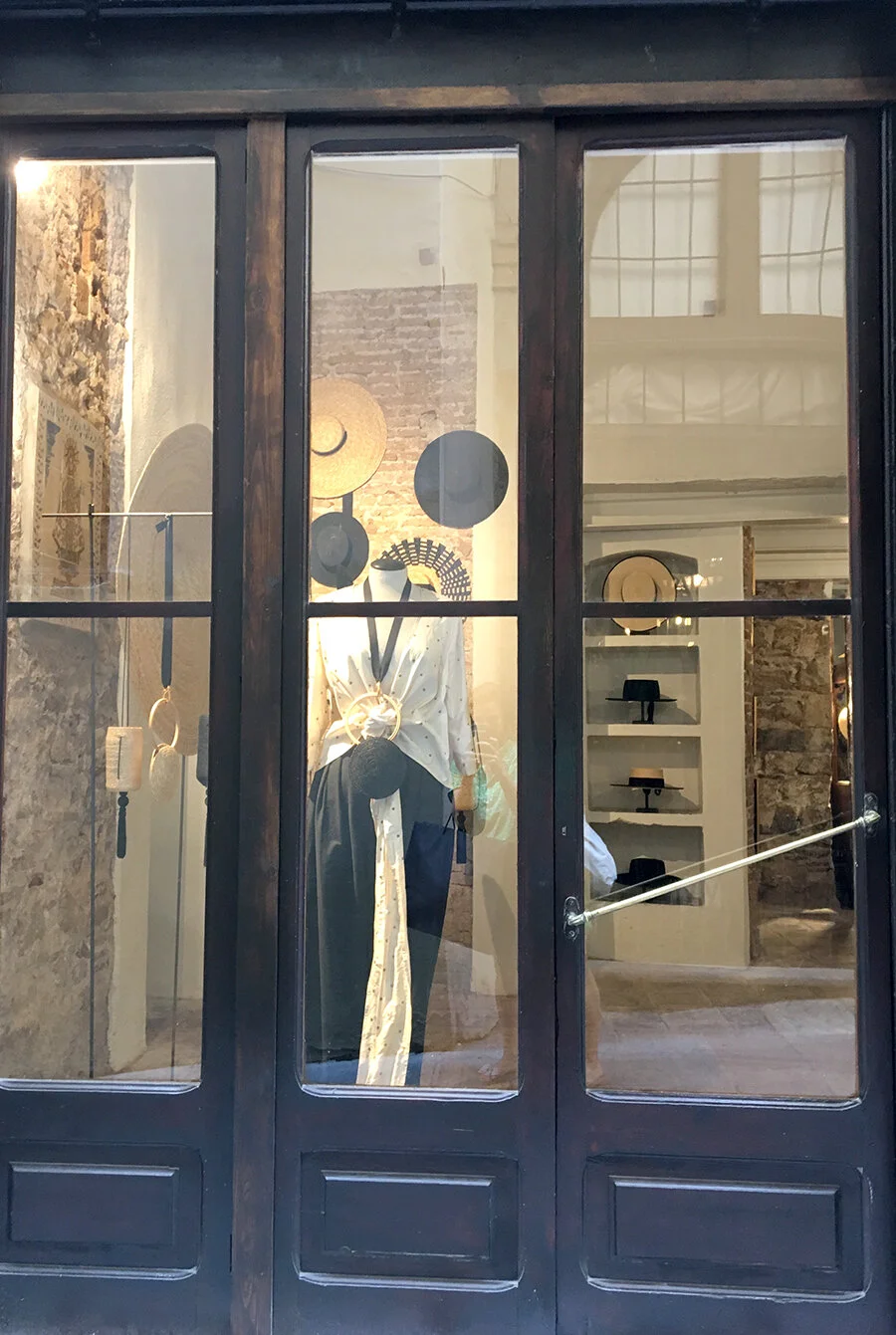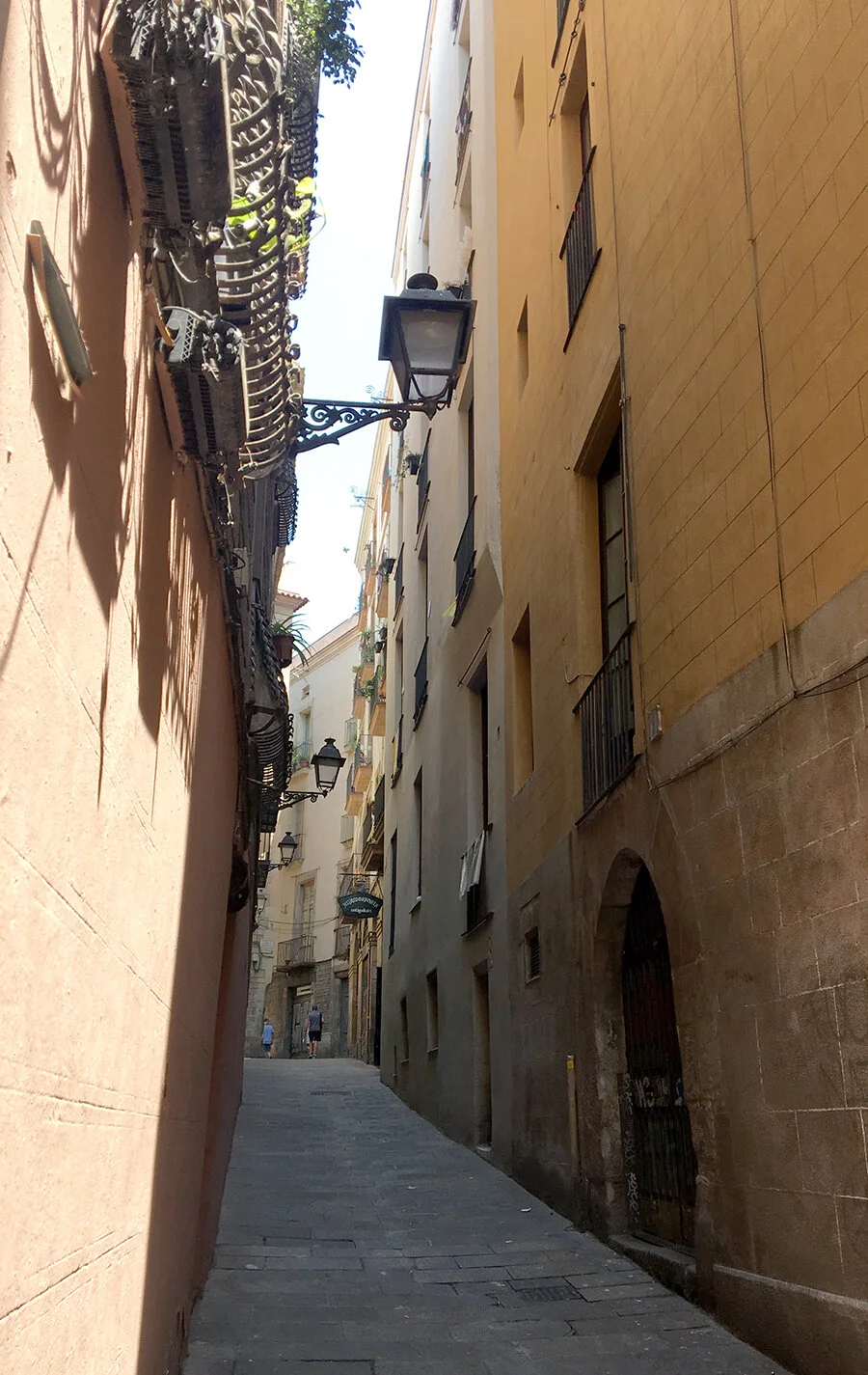Eli Urpí
In a narrow alley of Barcelona in the Gothic Quarter, I find Eli in a showroom space, full of old textures. There are brick walls, and stone, antique door frames, and corners showing layers and layers of paint from the past, and on which her pieces of art hang.
Eli's artistic expression is channeled into the production of hats, handbags and some beautifully designed clothes. What strikes me at first sight is the incredibly elegant approach - and then the texture of the materials she chooses. For example, there are natural rafias, fabrics and ribbons perfectly matching the environment. Everything seems to be an interpretation of both old and new, and combined so carefully.
Eli is so humble and when I ask her if she grew up around fashion ateliers, she says, "No…soy hija de payés” or "I am a peasant’s daughter." And this openness doesn't do her calm talent justice. She studied design in ELISAVA in Barcelona, where she has lived since she was 18. But before that she spent her childhood in between grapevines in the Penedés countryside. Probably inspired by a rustic upbringing, that essence has passed onto the lines she draws with her creations now.
Nacho is from Uruguay, and brings a sensibility to the brand with his knowledge in other disciplines. His love for photography and years of experience in restoration. I cannot help but see the cohesive framework onto which this brand has been built. All the creative assets they produce are aesthetically moving beyond just pleasing images and through the process they interpret the imaginary in where their hats exist. Creatively, but also emotionally, it is very inspiring to see.
This year marks 10 years since Eli started creating pieces. By doing what she does, her experience has only refined what her vision is and together with Nacho, hard work and perseverance have formulated this subtle but gorgeous brand, which itself seems well established and points towards a brilliant future.
I have been a fan of Eli's work for years, having discovered her through someone in California. Perhaps not surprisingly, her work has been crossing boundaries for some time and so attracts many devotees from around the world.
They make their own shapes now, but for years they bought the wooden solid blocks from the stock of retiring milliners and odd thrifting finds. Since then, their production has become much more fluid, although the workshop has changed greatly, not least because producing hats takes up so much space. They keep producing at home a lot. But their shop now exists as a separate entity allowing street traffic to enter and wander through Eli Urpí ’s universe in this gorgeous location.

